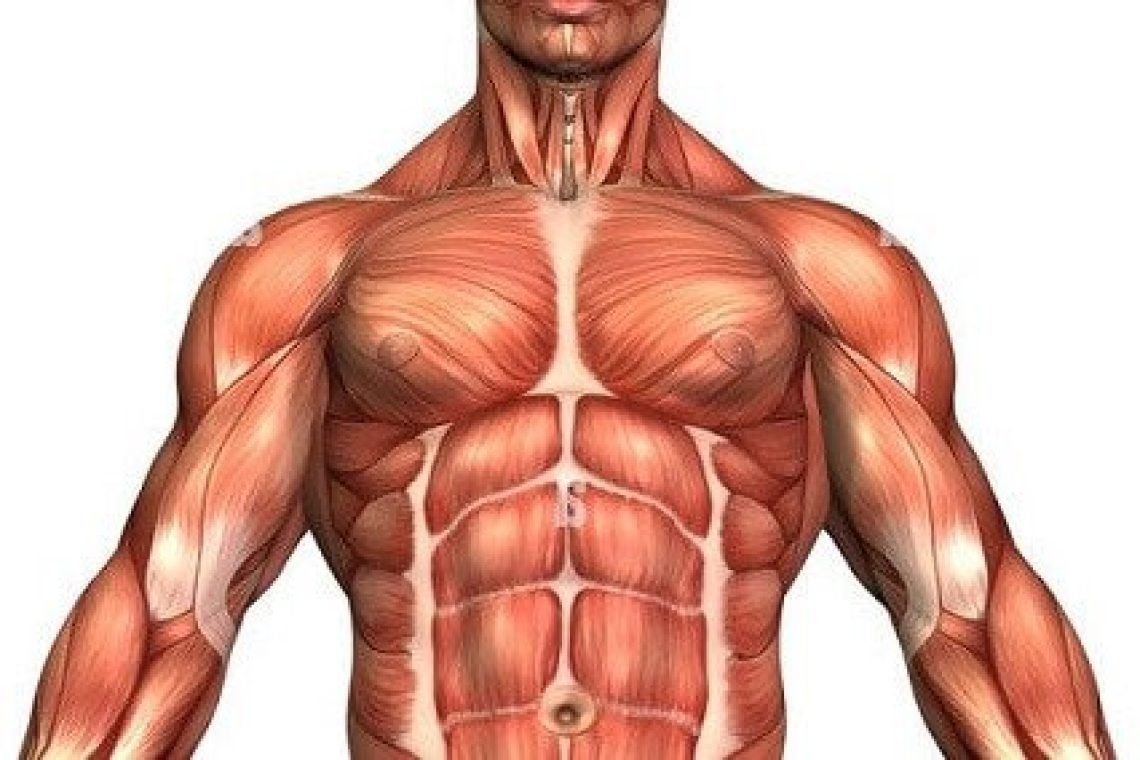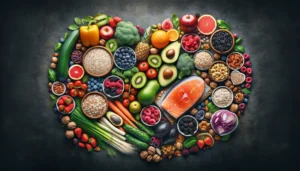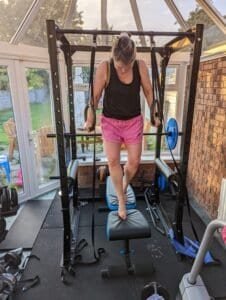Lots of people want to grow muscle but aren’t sure how to grow muscle. They might want to do it for improved sports performance, for aesthetic reasons, to mitigate the muscle loss we are all at risk of with aging or to change their body composition for health reasons. So, what’s important to factor in if you want to grow muscle?
- Eating enough calories.
- Eating enough protein each day.
- Eating enough protein at meal times.
- Eating good quality protein.
- Eating protein before bed.
- Being consistent with strength exercise.
- Other factors.
Eating enough calories
It is possible to build/ gain muscle while in a calorie deficit. The notion that we are either losing tissue or gaining tissue isn’t actually true. Research has disproven it. However, it takes a lot more time and work to build muscle in a calorie deficit (not eating enough calories to fuel your body/ undereating) and it isn’t as efficient. If gaining muscle is your main goal, and you want to achieve it as quickly as possible, then eating enough calories (by enough I mean extra calories) is the smart way to go about it. You don’t need a lot more calories, just a little bit (e.g. a few hundred extra). If you want to build muscle without gaining much fat, avoid a large surplus in calories (keep it less than 500 calories of extra food). So once you know the calories, where should the calories come from? This is also called ‘macro distribution’ (macro refers to macronutrients). Although there is a lot of talk about keto (high fat, low carb) as well as low carb, the research doesn’t back any particular diet. Once you have the protein spot on, the balance of the rest of your calories can come from fats or carbs. The choice is made by considering personal taste, trial and error (past experience, if any) as well as medical history (your own and your family). That said, 1 gram of fat per kg of body weight is a healthy target and 3 grams of carbohydrate per kg of body weight is considered a good starting off point.
Eating enough protein
The general target (0.8 grams of protein per kg per day) for protein is based on the average person, and what they need to eat to prevent becoming unwell. I don’t know about you but I’m not aiming to eat so that I don’t become unwell, but rather eat to become more well! Basically, you don’t just want to survive, you want to thrive. Protein requirements depend on goals, age, size, activity levels and whether you’re eating a plant-based diet or not. We have many ways of looking at it which include targets based on size e.g. 1.6 to 2.2 grams of protein per kg and targets based on calorie intake e.g. 15-30% of the calories coming from protein. That said, eating 1.2 grams per kg per day is often enough, but 1.6 grams per kg per day is usually spot on. This is a good protein target for menopause when you’re trying to mind your muscles and bones, while also honing in on fibre. However, sometimes it’s beneficial to go above 1.6 grams per kg per day. For example, if injured, if unable to train, if in a large calorie deficit e.t. on ozempic, mounjaro, after bariastic surgery. However, sometimes people just feel better eating 2 grams of protein per kilogram per day, especially if they’re a hungrier person, older person or exercising with intent. Despite the myths about higher protein intakes, it’s safe for a healthy person to eat higher protein as long as they’re getting enough of everything else (esp fibre!).
Eating enough protein at meal times
Usually, people need to eat 3 to 6 times a day. A big player here, other than size, is age. It might take 10 grams of protein to stimulate a young persons muscles. However, it takes 20 grams of protein to stimulate an older persons muscles to grow. So older people need twice as much to achieve the same thing. If you’re asking yourself if you’re considered old, the answer is probably, the research is offensive! It’s also worth noting that new research suggests that you can get more response from your muscles the more protein you eat, and they respond for longer. So, if you eat more than the 10 or 20 grams of protein mentioned, then that may be beneficially in terms of muscle growth, as long as you’re doing the work in the gym.
Now, we also need to tailor protein intake at meals to the person’s size or else we would be insinuating that a smaller, frail women/ man needs to eat as much protein as a bigger, active woman/ man. That would be silly. Other things matter here too such as medical history and whether weight loss is a goal. The concept of spreading your protein out throughout the day isn’t as important as once thought with regard to muscle building. However, it does come with a heap of other non-muscle building benefits e.g. hunger management and some people struggle to eat large portions e.g. second chicken breast in a meal.
The quality of the protein
Proteins are like pearly necklaces. Each pearl is an amino acid, and each protein differs in how long it is, what pearls it contains, and what pearls sit next to each other. Higher quality proteins are similar to the muscle proteins in the body. Generally, but not always, animals proteins are higher quality than plant proteins.
Not only are they similar to muscle, they are also high in a particular type of amino acid/ pearl called leucine. How I would explain leucine is that it’s the switch that needs to be turned on to trigger our muscles to build at their fastest pace (more of a dimmer switch than an on-off switch). Or put it another way, if a builder is building a house, it’s the coffee you feed them to make them build faster! You need about 2.5 grams of it per meal (this is nuanaced, and you’ll never count your amino acid intake, so don’t get hung up on it). You need more leucine if you’re older and less active, and less leucine if you’re younger and more active. This is why young athletes don’t really need to bother with protein powders like whey protein powder. They’re more beneficial if you’re older or more sedentary (don’t move or exercise much). If you are following a vegetarian diet, eggs and dairy are rich in leucine. If you are exclusively plant based (or vegan), then soya proteins are a focus.
| Typical serving | Calories | Protein (g) | Leucine (g) |
| Tuna | 110 | 28 | 1.6 |
| Whey | 100 | 23 | 2.5 |
| Chicken breast | 185 | 36 | 2.7 |
| Cottage cheese | 165 | 28 | 2.9 |
| Firm tofu | 100 | 11 | 1 |
| Oats | 165 | 6 | 0.5 |
| Peanut butter | 190 | 7 | 0.5 |
| Black beans | 220 | 15 | 1.2 |
Eating protein before bed
We are constantly building muscle and constantly losing it. When we build it faster than we lose it, we can gain muscle. The time of day where muscle building is slower is at night while we sleep. As protein and strengh training are what trigger muscle building, you can understand why this might be the case. So, studies have looked at giving people protein before bed, they’ve looked at different types of protein, and if training in the evening is necessary. What they’ve found is that a big protein feed before bed (think 40 grams or more) will help push the body into a situation where it’s gaining more than lowing muscle. Also, research shows that this doesn’t negatively impact sleep (phew!). Please don’t get too hung up on this either. I mean, we want to lose our crappy muscle fibres and build new, better ones. So, losing muscle isn’t always negative. If using protein powder, there’s a bit of research into casein protein. You can eat casein protein naturally through quark, skyr and cottage cheese.
Being consistent with strength training
Although protein and calories are important, nothing is more important than putting the work in. From self-reported data we know that about 1 in 3 people do something ‘strengthening’ twice weekly (sometimes research suggests it’s actually 9 in 10 don’t do enough). Although there are many things to consider to maximise muscle building, research this year really simplified it and reminded us all to stick to the most important factors which are;
- be consistent (choose strength stuff you like to do, at a time that makes sense),
- lift as heavy as you can (keep it safe & sensible),
- exhaust your muscles (get to the point that you can’t do anymore)
- aim for 3 times a week (muscles are often stimulated for 48-72 hours after a session).
Don’t get too hung up on any of these factors. For example, don’t like lifting heavy then lift lighter but do more reps. Don’t like doing big sessions, do a little bit every day. Don’t like lifting till you can’t lift anymore, then don’t, you’ll still reap rewards from your work.
A bit of recent research suggested that eating enough protein was about 10% of muscle growth, and 90% was the exercise. So, don’t put so much focus on protein that you have neglected what really matters.
Other factors
Like all things nutrition, context matters, it’s always complicated and nuanced, and never forget lifestyle factors. Things like gender, age, sleep, stress, disease and genetics will make a difference to the process. Women will gain strength easier than muscle and younger people gain muscle faster than older people. But, we can all do it. Despite the myths, women can gain muscle like men, and they can gain muscle during menopause! Also, if losing weight and trying to lose predominantly fat rather than muscle, that’s super hard to achieve if you’re not sleeping enough. (Damn those pesky kids 😉 )











